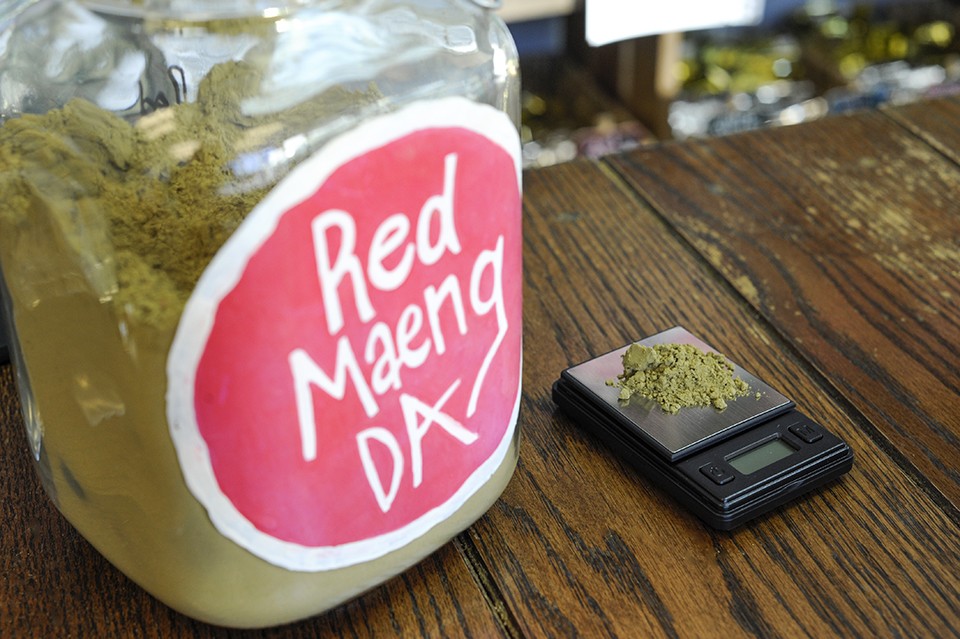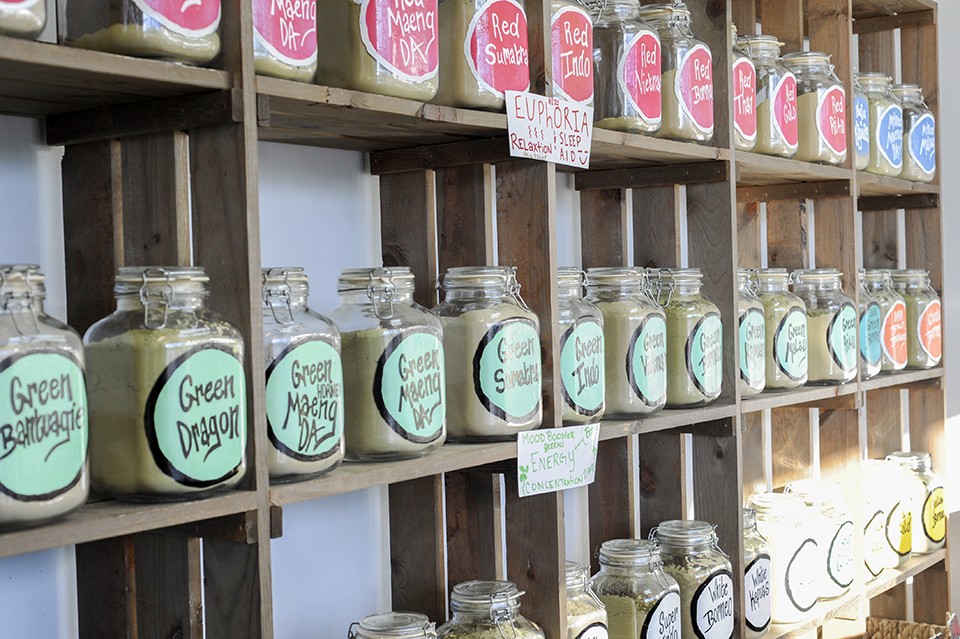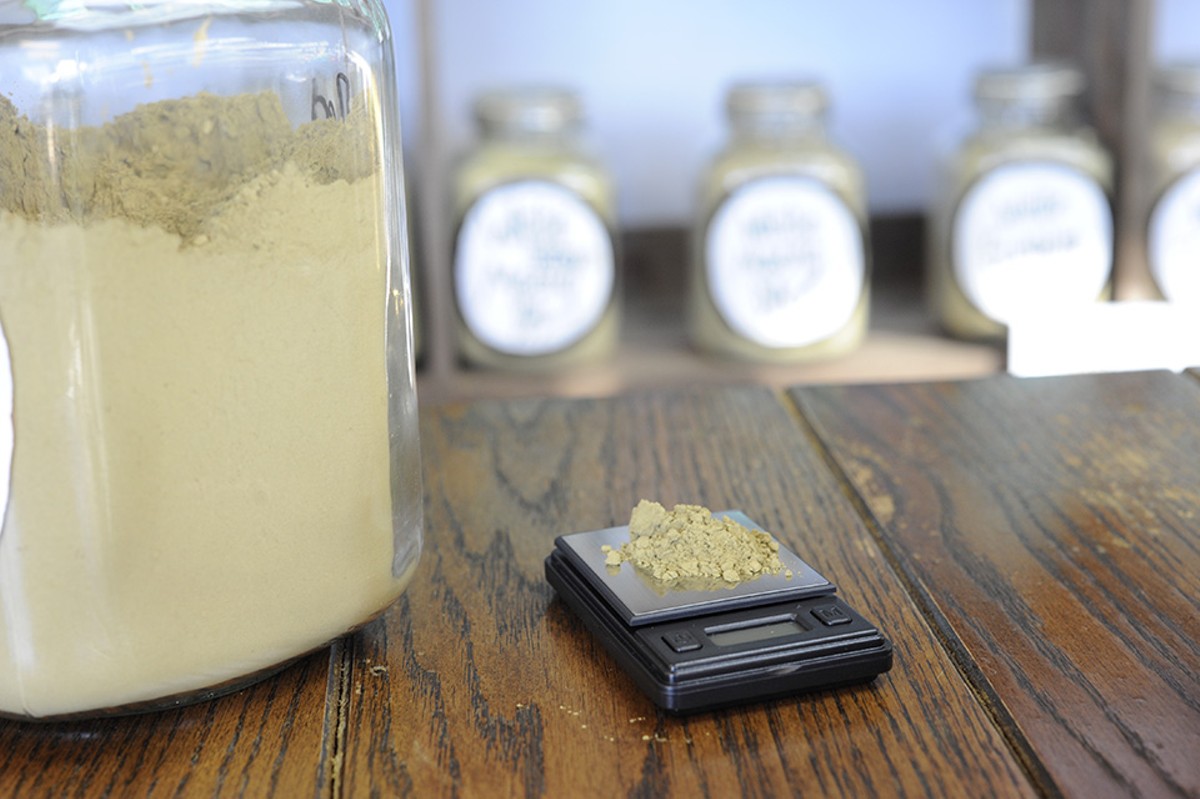
Dr. Evan Schwarz is an assistant professor of emergency medicine at Washington University's School of Medicine and director of the school's Medical Toxicology and Addiction Medicine Clinic. Schwarz, who spends most of his time in emergency medicine, is also the section chief for the medical toxicology section. He sees a lot of overdoses, people who have come into the ER after accidentally or intentionally taking too much medication or having complications after taking illicit drugs. He also practices addiction medicine, working with individuals abusing opioids, and it's in this part of his job that kratom comes up.
Patients he counsels do occasionally ask about kratom as a potential therapy, and Schwarz says he advises against it. More commonly kratom becomes part of Schwarz's conversation with patients because they are already abusing it or because someone asks if kratom could be the cause of a complication they're experiencing.
"One of the biggest problems we have is that what's being sold here isn't the same as what's being taken straight from the plant," he says.
For instance, the packets sold around St. Louis often have much more 7-hydroxymitragynine, which is the specific metabolite that engages the user's opioid receptors, than would be found in the kratom plant itself. Schwarz says he has taken care of people who have had liver complications and bleeding in the brain from kratom.
Making things worse, Schwarz says, is that kratom is as unregulated as bath salts and K2, which have both caused serious harm to users. When doctors have analyzed K2, for instance, they have found a lot more than just the "fake weed" present in the product. Schwarz says it's likely the same goes for kratom sold over the counter. Lacking regulation, when people buy kratom there is no way to be certain exactly what they're buying.
"When you go to the pharmacy to get medicine for your blood pressure," Schwarz says, "what you get is exactly what you asked for and were prescribed — there's not, like, four different kinds of blood pressure medication in there just because someone decided to throw them in. When you buy this stuff from head shops or wherever, you never know what's in what you're buying. and some of the stuff people put in there could make you really sick."
Schwarz acknowledges that placing kratom on the list of Schedule I narcotics will make it very difficult to research further, and that is a legitimate reason to oppose the FDA's push. "But," he says, "that shouldn't be the deciding factor."
While Palatnik and Schwarz are defnitely not on the same page when it comes to kratom, there is a certain resonance between what the two men have to say. Schwarz says the problem with kratom is that users have no idea what they're taking. Palatnik says he opened his store because kratom needed to be in a "special place," because most sellers had no idea what they were selling. His kratom, he says, is just the ground-up leaf, with nothing added. There's no reason to doubt him but, absent any regulatory oversight, customers have to take Palatnik at his word.
Hunter-Hannan says he avoids the head shops and gas stations that sell kratom in Columbia and instead buys his kratom "exclusively online" from distributors he trusts. "You never know," he says. "People could be putting stuff in their kratom, but I don't want any filler, and when I buy from these distributors I feel like they're giving me what they're supposed to. It smells good, it's all the same color. It's all the color it's supposed to be."

The lack of serious research into kratom makes it difficult to know how many people in the U.S. are using the drug, especially since most standard drug tests don't detect it. But, Schwarz says, data suggests a recent increase in overall use — or at the very least an increase in reported serious complications associated with it. One CDC study, for instance, found a tenfold increase in kratom-related calls to poison control since 2010. What's behind this trend is hard to identify, but Schwarz says that the drug being easily accessible in most states is likely a factor.
Much of the press coverage around kratom has placed it in the context of the country's larger opioid crisis, focusing on the subset of kratom users who take it as an alternative to illicit opiates. But Palatnik says that while people certainly take kratom for those reasons, to focus solely on them overlooks the majority of people who come into his store.
"Government agencies try to say [getting off opioids] is the main reason people are taking kratom," he says. "It's not the main reason. I know it's not because I'm here at the shop all the time, and people tell me why they take it. I know better than the FDA."
One customer overhears Palatnik talking and, though he asks that I not print his name, confirms that he is a pulmonary physician in the area. He's been using kratom for more than fifteen years, he says, primarily as a way to relax in the evenings after work, not unlike how a lot of people have a beer.
"It's used by law-abiding citizens who own businesses and have professional jobs, people who have marriages and children and successful occupations," he says. In the past, he adds, he's stopped using kratom cold turkey with no negative effects.
It can seem contradictory when Palatnik and other kratom supporters speak about both the product's near-miracle and euphoric effects as well as the notion that it's a mild substance. But to Palatnik's larger point, the people who come in and out of his store look like patrons of any other business — an older woman after a yoga class, a couple of younger guys, a middle-aged couple, a man in a suit, a man whose inquisitive conversation with the clerk lasts nearly as long as my interview with Palatnik — decidedly unlike people who look in desperate need of some sort of fix.
Leaving CBD Kratom, I bump into Fred, who is wearing painter's pants and a sweatshirt speckled white and brown. He doesn't want to give his last name, but he says he takes "a pinch of Green Maeng Da every morning with orange juice" for the pain caused by being on his feet all day. Kratom allows him to work an eight-hour day and, just as importantly, he says, "lets me stay away from the stupid stuff. I don't want to get addicted to anything."
When I ask if he's ever used prescription drugs for his pain, he looks at me like I'm crazy. He wouldn't even touch aspirin, he says. He isn't interested in ruining his life with an addiction.
Ryan Krull is a freelance journalist who teaches in the Department of Communication and Media at UMSL.







